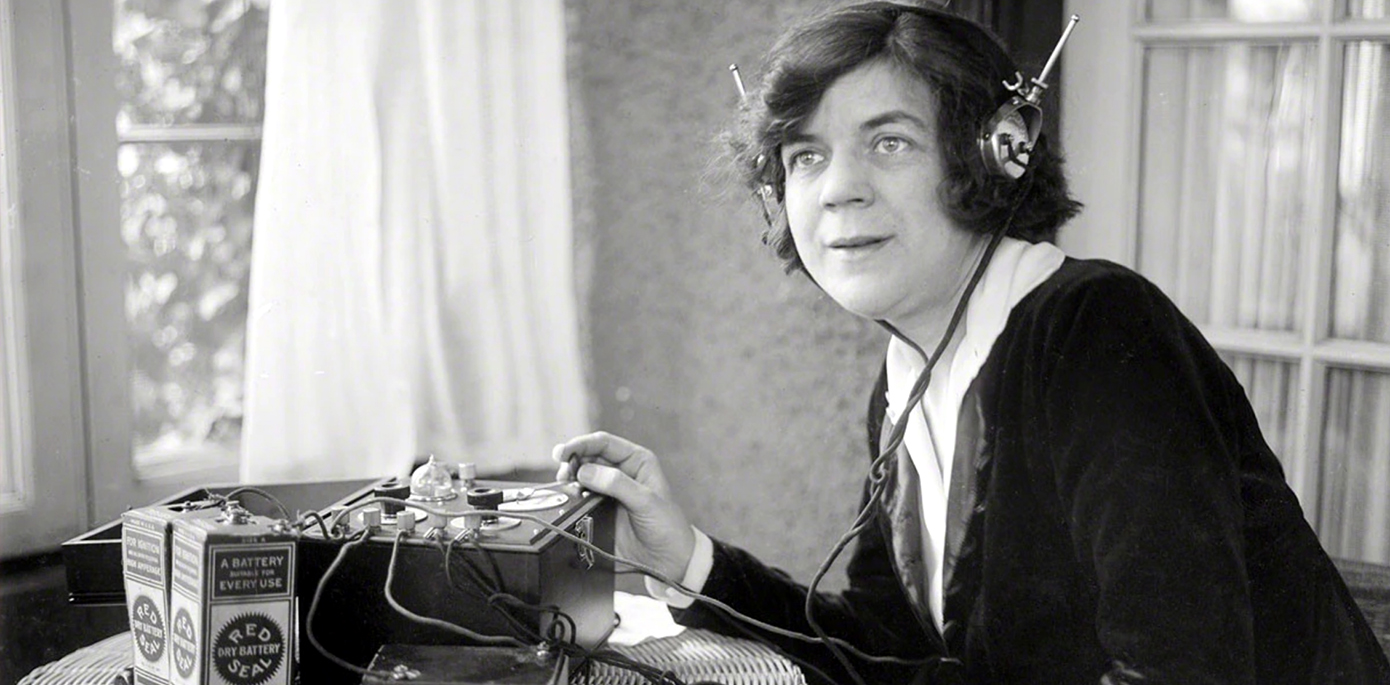Some thoughts for the twenties
What’s the next decade going to be like?

Last time around, we had the “Roaring Twenties”. They have a glamorous reputation, but it’s worth remembering that they were when fascism arrived, and they ended in a global economic depression that partly caused and was only ended by the greatest conflict in history.
Parallels with our current situation? During the 1920s the economic system became ever more fragile. There was intense social upheaval after the First World War. A major shift within the media, to a focus on celebrities. And a surge in electronic technology: widespread electricity in homes, telephones, cinema, higher-quality gramophone recordings, radio everywhere, and more. Very similar to today.
Joseph Goebbels, speaking at the opening of a radio exhibition in Berlin in 1933: “The Weimar Republic [1918-1933] was not able to understand the full significance of the radio.” Again, very similar to today.
* * *
At the beginning of the 21st century, the near-universal attitude to information and communication technology (ICT) was “get as much of it as you can”. But during the 2010s, feelings of alarm started to emerge; slowly at first, but recently with great urgency. From selfie fatalities to the gradual death of the social space, from the appearance of mind-rental at election time to the normalisation of transhumanism, we’ve suddenly become very concerned. It’s becoming evident that this surge in new technology doesn’t seem to be contributing to people’s cerebral independence and sense of well-being, and is clearly having a devastating effect on political discourse. We’re noticing that while we have more convenience, we seem to have less time. The fact that the computer system has the same carbon footprint as the fuel burnt by the aviation system isn’t widely known, but it will come out eventually.
* * *
So, how’s the fightback looking? Well, phone-free pubs and restaurants are no longer seen as quirky. Ditto musicians asking concert-goers to keep their phones in their pockets. Rather than trying to get as much tech as possible into schools, we’re starting to restrict it. And lots more. In short, rejecting the immediate insertion of each new tech development is no longer seen as being just “retro”. We’re beginning to realise that it’s very, very important.
And here’s Berlin 84 years after Goebbel’s ICT speech:

The message on the Radikale Anti Smartphone Front’s banner reads “Love instead of Like”.
* * *
Maybe we can make a few New Year’s resolutions?
- Stop looking the other way. Take an active interest in the surge in electronic mind access, bearing in mind that we ain’t seen nothing yet.
- Make those personal changes we’re always hearing about nowadays: keep phones out of the bedroom, limit social media activity, notice passers-by, always carry a book to read, etc. Instead of installing willpower apps, install willpower.
- If you’re thinking of reducing your carbon footprint, consider the impact of media streaming
- And above all, reject the stampede. Tell people that you generally communicate with phone calls (it’s usually quicker – they can ring you back later if they’re busy when you call), tell your political representatives that you want them to rule the world – not Big Tech. Set an example for the next generation. And don’t feel weird. This is anti-weird
All media queries to:
Marcia Caines
Head of Brand Communications
m.caines@punkt.ch
Tel +39 345 17 01 024
www.punkt.ch
Twitter @punkt
Instagram @punktdesign
Headquartered in Switzerland, Punkt. was established by Petter Neby in 2008 with the idea of bringing a breath of fresh air into the consumer electronics market with outstanding, timeless products designed to do their job, without intruding on their owner's time and attention. From the very beginning, renowned British industrial designer Jasper Morrison was on board as the company’s art director. The name Punkt. is taken from the Germanic word for ‘point’ or ‘full stop/period’, and was chosen to symbolize the way the company’s products are built around simplicity, clarity and focus. Punkt. launched its debut product, the DP 01 Cordless Phone, in January 2011 at Maison et Objet in Paris. Since then, the company has continued to develop stylish, carefully designed and elegantly crafted electronics products aimed at people who want to be in charge of the technology they buy, and who understand the importance of subtle beauty in everyday life.



